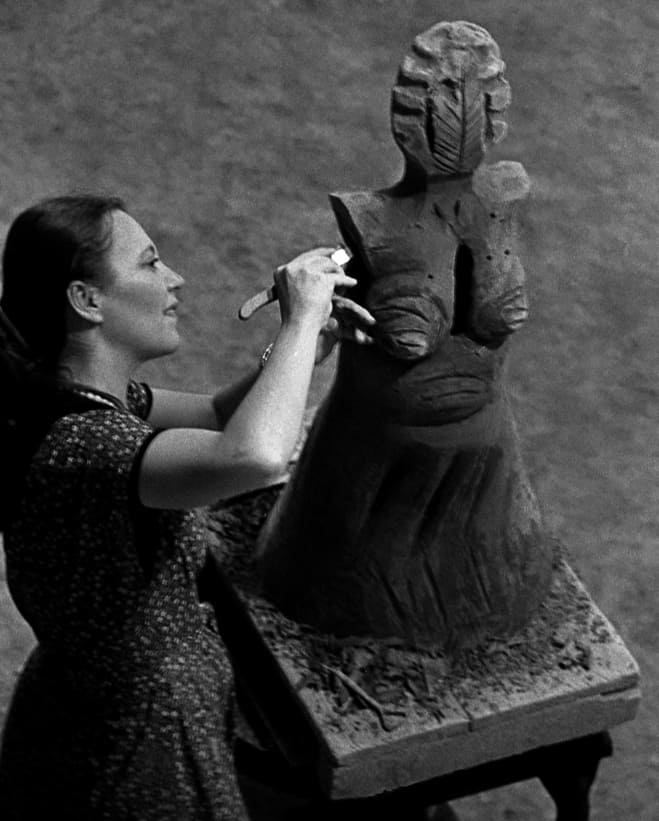→ LECTURE
Suzana Milevska, Ph.D.
Negotiations between Tradition and Feminism:
Women artists from North Macedonia

In her lecture Negotiations between Tradition and Feminism: Women artists from North Macedonia Suzana Milewska proposes to address the questions of tradition and feminism through the notion of patriarchy that is often imagined – inaccurately - as a homogenous and inevitable phenomenon. This is the case in particular in the Balkans – and even more so in North Macedonia that belongs to this region in Europe that is imagined as primitive and backward.
Her presentation will focus on the intersection between nationalist discourses, gender difference, femonationalism, and socialist women's movements. Milewska is looking at various case studies and unknown repositories of archival imageries including artworks by women artists and presents several feminist research projects by women artists from North Macedonia to challenge the assumption of the universality of feminist methodology and research methods, and the difficulty with applying a unified theory of knowledge production in feminist art.
Suzana Milewska Ph.D. theorist and curator of visual art and culture. Her theoretical and curatorial interests include postcolonial critique of hegemonic power regimes of representation of gender difference in visual culture and feminist, participatory, and collaborative art practices. Milevska was a Principal Investigator of the Horizon 2020 project TRACES, at Polytechnic University Milan, and in 2019 she curated its final exhibition Contentious Objects/Ashamed Subjects. She was an Endowed Professor for Central and Southeastern European Art Histories at the Academy of Fine Art Vienna (2013 - 2015). Milevska holds a Ph.D. in visual cultures from Goldsmiths College University of London. In 2004 she was a Fulbright Senior Research Scholar at Library of Congress in Washington D.C. She curated numerous international exhibitions such as The Renaming Machine (2008-2011), Roma Protocol, Austrian Parliament, Vienna, and Call the Witness, BAK Utrecht (2011). She initiated the project Call the Witness–Roma Pavilion, Venice Biennale (2010-2011). -2011). During her Künstlerhaus Büchsenhausen Fellowship (2021-2022) in Innsbruck, she developed a long-term research project The Ethical and Aesthetical Protocols of Apology. She published the books Gender Difference in the Balkans, 2010, The Renaming Machine: The Book, 2010, and On Productive Shame, Reconciliation, and Agency, SternbergPress, 2016. In 2012 she received the Igor Zabel Award for Culture and Theory.